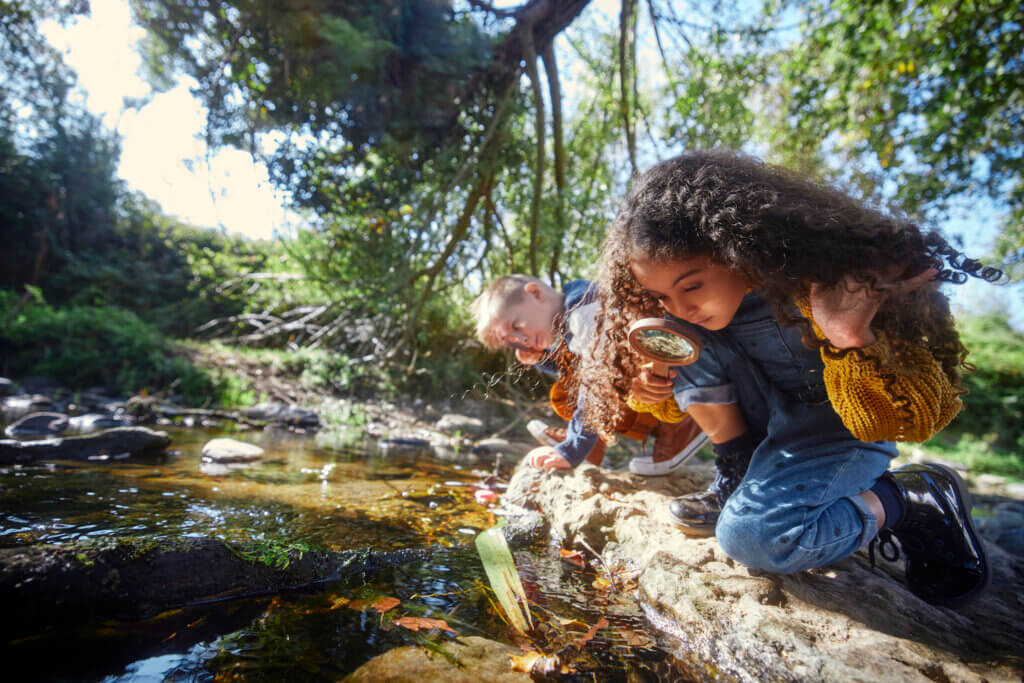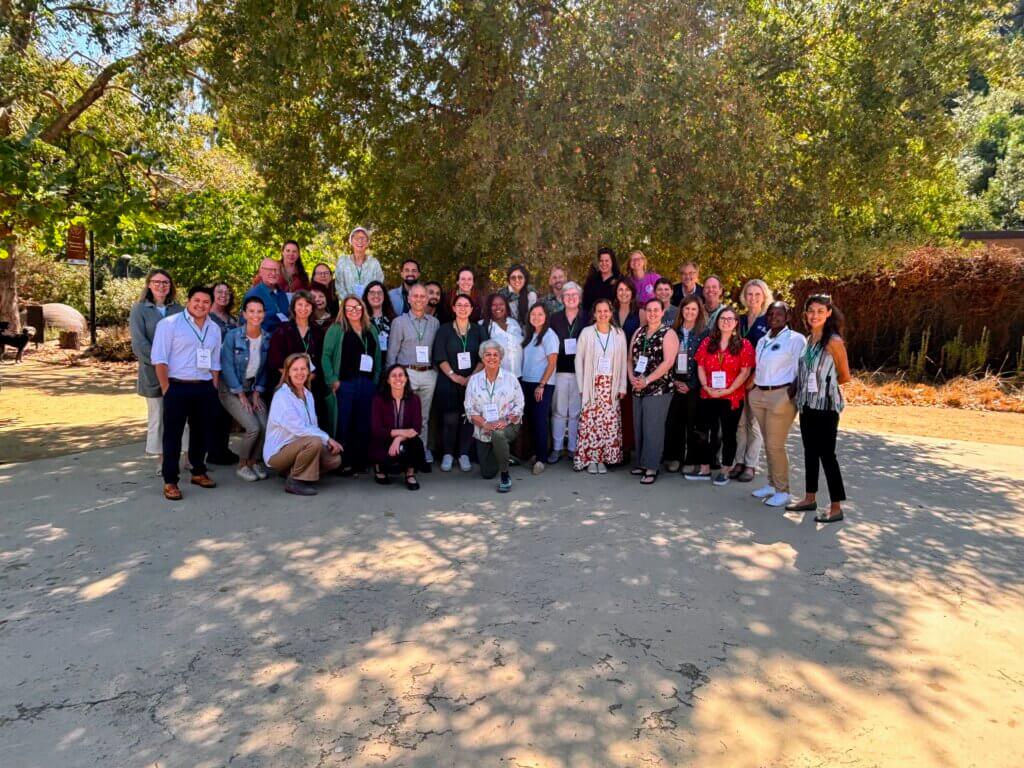This article is the second in a series featuring the formation and progress of a coalition to carry out a statewide California Campaign for Outdoor Learning. The first article is here. Want to get involved? Contact cstrang@berkeley.edu or croyer@tenstrands.org.

For those devoted to social justice, improving education, reversing climate change, and healing the environment, November and December 2024 were rough months. So, who’s ready for a hopeful, positive vision for one little corner of our world that is not red or blue and that might even be possible to achieve in the next few years? Grab yourself a chai latte, a square of dark chocolate, or a smooth añejo tequila, take a deep breath, and read on.
The California Campaign for Outdoor Learning envisions that in five years, most TK–12 students in California’s public schools have a direct, meaningful, mutually nurturing relationship with the outdoors and the natural world. Students actively and joyfully engage with the outdoors and nature to improve their physical and mental health, academic achievement, relationships with others, and the health of their communities. Students understand their right to clean and healthy air, soil, freshwater, and ocean ecosystems and spend ample time learning in safe, healthy, awe-inspiring outdoor spaces close to their homes, schools, communities, and more remote wilderness areas.
These relationships arise from regular, bountiful, and skillfully designed experiences on green schoolyards, off campus in their local community, further away in larger, more remote open spaces, and at residential outdoor science schools. Widespread systems, practices, and cultural norms are in place to ensure outdoor learning experiences for every student in every grade of their TK–12 career. Outdoor learning is designed to support the development of students’ home language and cultural identity, including the traditional ecological knowledge held in their community.
Solutions to the needs and priorities of students who, due to longstanding systems of oppression, have become the most vulnerable and marginalized are centered. State funding, resources, and opportunities are consistently directed first to students of color, Indigenous students, emerging multilingual students, unhoused students, and students in foster care. Across California, there is measurable and significant improvement in student health, academic outcomes, and social/emotional learning, with the greatest improvements among students of color and girls.
Teachers in all grades and subjects feel comfortable taking their students outdoors for regular instruction and appreciate the benefits to their own health and well-being from increased time outdoors. Teachers recognize that spending time outdoors with their students accelerates learning, has a calming effect, increases students’ ability to concentrate and focus, decreases behavior and discipline problems, and generally makes their job easier. Teachers have access to resources, equipment and supplies, outdoor learning curriculum, funds for field trips, and partnerships with community-based organizations with deep expertise working with young people outdoors. Nearly all schools have or are in the process of having outdoor classrooms, gardens, native landscapes, tree canopies, and access to local parks and open spaces by walking, public transit, or school bus.
Regional and statewide outdoor and environmental education networks support community-based organizations and help them build their capacity to partner with school systems and share best practices for high-quality teaching and learning. Every residential outdoor school in the state is fully booked to capacity, and several new sites are opening each year to handle increased demand.
Pediatric, mental health, public health, and learning researchers partner with California schools and families to conduct influential studies on many aspects of the benefits of learning outdoors for children. The resulting cascade of publications is advancing the field, ensuring the continuity and efficacy of future funding, and opening the doors to outdoor learning nationwide.
Parents routinely attribute the increase in their children’s sense of wonder and curiosity and their eagerness to go to school to the increase in outdoor learning time. Schools with well-developed outdoor learning programs show notable increases in enrollment and attendance compared to those without. California, the largest public school system in the country, is recognized nationally for utilizing its parks, landscapes, and coastline as a major asset for improving teaching, learning, and health for its six million students.
This vision emerged from the forty-two members of a nascent coalition that formed at the first meeting of the California Campaign for Outdoor Learning, organized and convened by Ten Strands on September 17–18, 2024, at the home of TreePeople in Los Angeles.
Here’s the back story . . .
In fall 2023, in the lingering aftermath of the COVID-19 pandemic, racial reckoning, and climate change catastrophes that wreaked havoc on our schools, our children, and our communities, Ten Strands began to explore the formation of a coalition to launch a California Campaign for Outdoor Learning. The campaign would focus on expanding the benefits to children, beginning with those most vulnerable and marginalized, of learning outdoors as a direct antidote to the multiple learning and mental and physical health crises facing our children. The purpose of the campaign is to achieve legislation and significant funding to dramatically increase the amount of time spent learning outdoors for all six million of California’s TK–12 students, with a particular focus on students of color, emerging bilingual students, and students who are unhoused or in foster care.
We met individually with thirty-five thought leaders from various fields and disciplines to gather input to form the contours of the campaign. This first phase of our work is summarized in a previous article. In addition to invaluable, detailed insights, our main finding was the tremendous enthusiasm and sense of urgency for collectively pressing forward with a campaign. We heard loud and clear that spending time learning in safe, healthy outdoor spaces leads to improved health, well-being, and academic outcomes and specifically that it is directly related to measurable decreases in attention deficit, hypertension, obesity, depression, alienation, viral infection, climate change anxiety, and increasingly toxic time spent on screens. We heard an eagerness to collaborate across sectors, disciplines, and fields toward a collective goal. The consensus quickly emerged to press forward.


